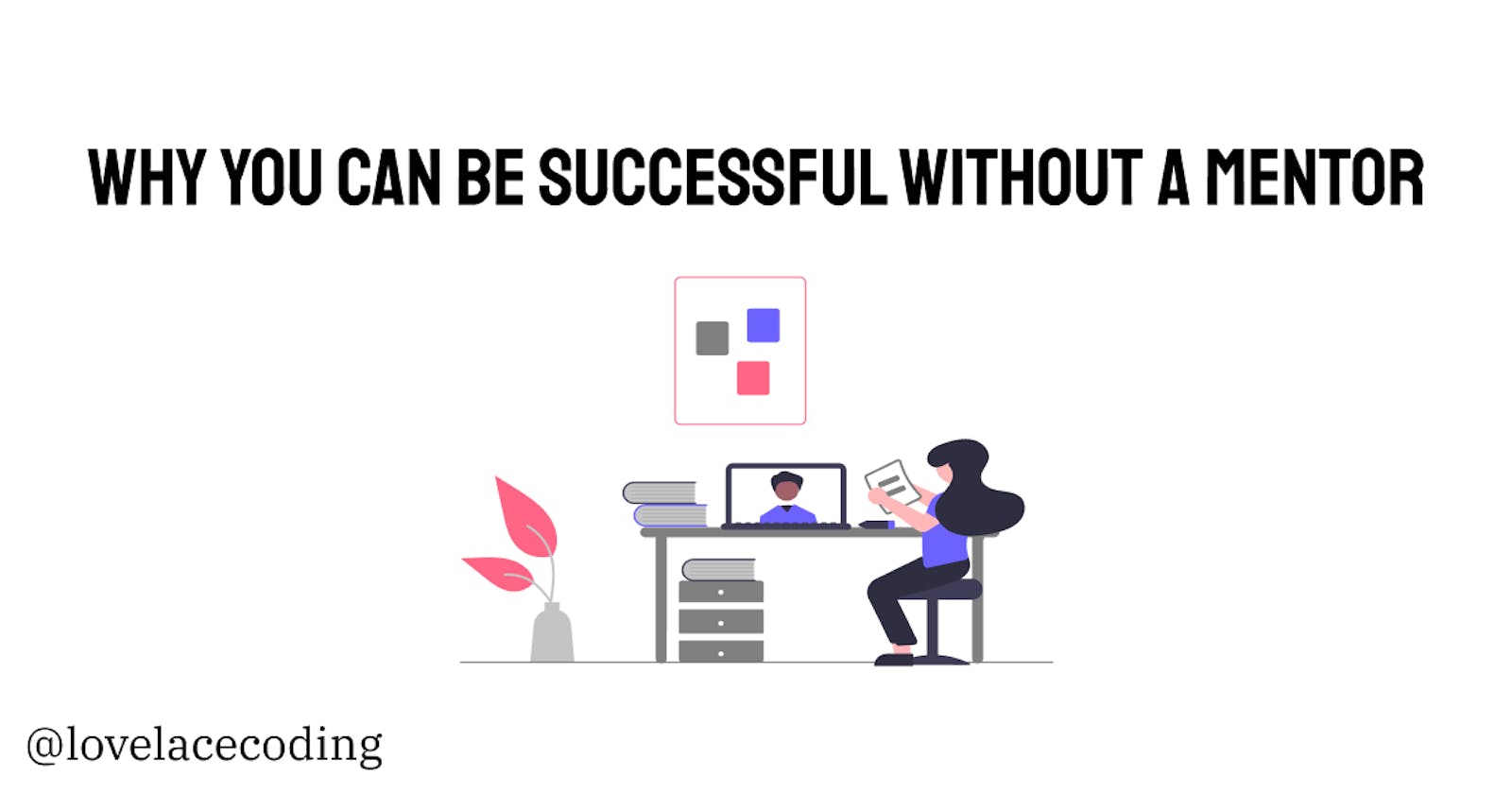Hey lovely readers,
A lot of people who have recently started learning how to code are asking anyone they can find if they would like to be their mentor. Mentors appear to be the newest hot thing to have and it’s noticeable in Twitter Spaces and DMs. For some, asking and being rejected or ignored repeatedly when they ask, "Do you want to be my mentor?" can be extremely disheartening.
But do you really need a mentor when you just got started and aren't even close to being ready for a job? No, you don't, in my opinion. Let me explain why.
Disclaimer: This is an opinion piece. If you don’t agree with me, that’s fine. We all try to learn here and share knowledge. Differences in opinions are a-okay.
What is a mentor?
A mentor is someone who assists you in achieving your goals in your career. Most of the time, it's someone who is at the point in their career where you want to be. It's also possible that this person possesses qualities, skills, or knowledge that you'd like to acquire. They make time for you to train you, answer your questions, and provide feedback.
Mentors can be paid, a colleague at work, or someone you met online or at a meet-up. If you don’t have a job yet, you’ll most likely looking for the ‘someone you met’ option.
Not some kind of magic
Many newcomers to the development world believe that the moment they find a mentor, they will have private classes and a job as a junior developer in 20 seconds. This is not true at all. Some mentors may have 10-minute video chats with you once in a while, or answer questions you may have.
Nobody will hold your hand and teach you everything; you will have to learn the majority of things on your own. The chance that they will help you directly with a job later on is small too, you’ll have to go job hunting all on your own.
Learning on your own is good for later
Once you land a job, you'll need to be able to do independent research and problem-solve. Nobody will hold your hand unless you're applying for an internship. Gaining experience in debugging, getting used to getting stuck, and evaluating software packages can all help you improve as a developer quickly.
So go out there and irritate and frustrate yourself; it will help you getting to new levels.
Being called a mentor is uncomfortable
Imposter syndrome affects people, including senior developers and those who have worked in this field for a long time. Many developers, or people in general, do not like being put on a pedestal. Especially by a total stranger. This can really be off-putting.
I always feel like I'm not far enough along in my career to be anyone's mentor, and I also don't have the time. But if you come to me with a coding question that does not include the word "mentor," I will most likely answer. Consider people as friends or friendly people rather than mentors. You're more likely to get the answers you need this way.
What if…
Here are some of the other questions I get in my Twitter direct messages about mentorship that’s not ‘do you want to be my mentor?’.
What if I really need help or an opinion from somebody else?
The developer community is incredibly passionate about assisting newcomers. Why have a single mentor when there are thousands of people who can assist you? Post your questions on Twitter, Reddit, StackOverflow, or Discord; someone is always willing to assist if you do so politely and in a clear manner. It will also grow your network and grow your amount of opportunities because you’re #buildinginpublic.
What if a friend that has more experience is open to mentor me?
If anybody that you think you can learn from is offering to mentor you and you feel comfortable with it, do it. Just don’t wait for them to help you all the time. Put in your own effort as well.
What if already have a career and I want a mentor?
If this is your situation, consider posting something about searching for a mentor on social media. Especially LinkedIn or Twitter could help if you’re in tech. Or maybe consider paying for a mentor that has done courses in leadership and coaching so that you’re sure you’re in good hands.
That’s a wrap!
Thank you for reading. I hope this can help you in your (future) career as a developer. If you have any suggestions or tips, feel free to leave a comment or contact me on Twitter at @lovelacecoding. See you later!

